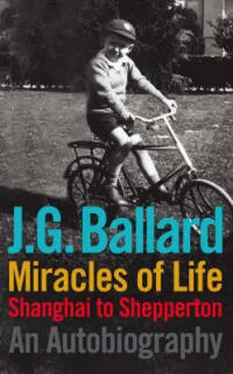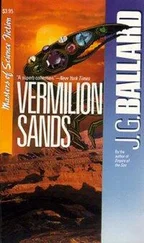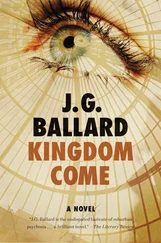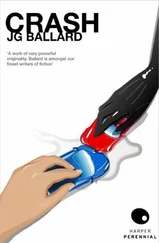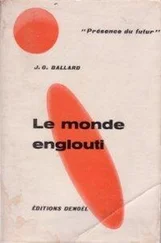In many ways life in Shanghai instilled a kind of unconscious optimism in the European residents. Living in a centre of unlimited entrepreneurial capitalism, everyone believed that anything was possible. In the last resort, money would buy off any danger. The vast metropolis where I was born had been raised within not much more than thirty years from a collection of low-lying swamps (selected by the Manchu rulers as a sign of their contempt), and attracted bemused visitors from all over the world, from George Bernard Shaw to Auden and Isherwood.
There was also a pleasantly tolerant climate of what now seems unbelievably heavy drinking. When I mentioned the ‘two-martini lunch’ to my mother at the time I was writing Empire of the Sun , she retorted: ‘Five martinis…’ As a small boy I took it for granted that drinks were served at any hour, and the pantry cupboards resembled a medium-sized off-licence, with shelves of gin and whisky bottles. Many of the people my parents knew remained slightly drunk all day, and I remember the family dentist whose breath always reeked of something stronger than mouth-rinse. But this was common in the Far East, partly a social convention, an extension of wine with one’s meals to every other human activity, and partly a response to living in a city without a museum or gallery, and where the houses in the nearby streets were thirty years younger than the residents. I asked my mother about drugs, and she insisted that no one in her circle took them, though she knew people who were morphine addicts. But bridge, alcohol and adultery are the royal cement that holds societies together, and too many sedative drugs would have shut down a large part of Shanghai. In England in the 1960s my parents were abstemious drinkers, having a whisky soda before dinner and a single glass of wine, at a time when I was drinking half a bottle of Scotch a day. My mother was rarely ill and lived to the age of 93.
My earliest childhood writings began in the late 1930s, perhaps as a response to the greater tension I sensed among the adults around me. The outbreak of war in Europe and, later, the fall of France left my parents distracted and less interested in what I was doing. My sister, aged three, irritated me immensely, and I tried to devise entire days when I never set eyes on her. Breakfast was always a problem, with school deciding when I sat down to my mango and scrambled egg, and having to endure my sister’s babbling across the table. With a small boy’s logic, I took advantage of Mr Kendall-Ward’s carpentry room to construct a large plywood screen which I placed in the centre of the dining table. I equipped it with a spyhole through which I could ferociously keep watch on my astonished sister, and a miniature hatch cover that I would flick into place when she noticed my staring eye. Amazingly, my parents took all this with good humour, but they drew the line when I joined them for lunch with friends and arrived dragging my huge screen, which I urged No. 2 Boy to set up on the table.
But clearly I needed to be alone. I was always a keen storyteller, and enjoyed school essays when there was a free choice and I could describe some important event, real or imaginary. At the Cathedral School the standard penalty for small infringements was ‘lines’, which involved copying out a set number of pages from a worthy book we were studying. So it would be ‘Maxted, five pages; Ballard, eight pages,’ a considerable chore on top of one’s regular homework. The choice of text would usually be one of the Victorian writers in the school library – G.A. Henty, Dickens (we read A Tale of Two Cities , which I loathed for its deep gloom), or Charles Kingsley. One evening at home, laboriously transcribing endless paragraphs from Kingsley’s Westward Ho! , a tale about the Spanish Main, it occurred to me that I could get along much more quickly if I invented the story and text myself. So I wrote a swashbuckling pirate yarn. Like all the boys, I took it for granted that the masters never read our lines, but the day after handing in my penalty pages the Reverend Matthews pointed sternly to me in front of the scripture class and said: ‘Next time, Ballard, don’t copy your lines from some trashy novel…’ This was my first review, and recognition of a kind, and was a spur to more efforts for my own amusement. It may have set my fiction in its subversive mode.
Bridge parties seemed to take place continuously at 31 Amherst Avenue, involving two foursomes of my mother’s women friends. I would sit on the stairs, listening carefully to the flow of bids – ‘One diamond, two hearts, three no trumps, double…’ – utterly baffled by the apparent lack of any logic in the sequences. Eventually, at the age of 10 or so, I nagged my mother into explaining the rules of contract bridge to me, including a few of the conventions, which were a code within a code. So thrilled was I at grasping the mystery of bridge that I decided to write a ‘book’ explaining the game to anyone as baffled as I had been. I filled about half an exercise book, furnishing it with diagrams in the approved style, and I remember clearly that there was even a section on ‘psychic bidding’, nothing to do with ESP but a form of bluff. I haven’t played bridge for fifty years, but that little explanatory text might well have given me a taste as a writer for the decoding of mystery.
The summer holidays in Tsingtao came to an end, but I still have strong memories of a pretty, almost Riviera-style beach resort. Tsingtao had been a German naval base at the start of the Great War, and in a small cove near our hotel were the rotting hulls of two German submarines, lying with their bows on the sand like rusting dinosaurs. The Germans had built a huge network of forts into the cliffs, and these were a popular tourist attraction. My mother and I joined one tour group, and we were guided through the dark, cathedral-like vaults. Immense lifts raised the heavy guns to the firing platforms, and through the gloom of damp concrete I could see upper galleries that gave way to further galleries and observation posts, and later reminded me of Piranesi’s Prisons . The Royal Navy bombarded the forts before its capture of Tsingtao, and the Chinese guides were very proud of the bloody handprints which they claimed were those of German gunners driven mad by the British bombardment.
My memories of Tsingtao are extremely pleasant, but my mother often told me that when I was a baby (in the summer of 1931 or 1932) the amah pushing my pram missed her footing on the grassy slope above the cliffs and lost control of the pram. It sped downhill towards the cliff ’s edge, where a chance British visitor ran forward and caught the pram before it went over the edge. Presumably he reported back to my mother at her hotel, though she never explained to me why a middle-aged Chinese woman, hobbling on her bound feet, should have been given charge of a large pram and told to walk along a cliff edge. Hitchcock would have revelled in the scene, but I think there is a simpler explanation. Parents in the 1930s took what now seems a remarkably detached view of their children, whose welfare if they could afford it was assigned to servants, whatever the hazards. My parents had been born in the first decade of the 20th century, long before antibiotics and public health concerns for vitamin-enriched foods, clean air and water. Childhood, for families of any income, was a gamble with disease and early death. All this devalued the entire experience of childhood, and emphasised the importance of being adult, an achievement in its own right. Children were an appendage to the parents, somewhere between the servants and an obedient labrador, and were never seen as a significant measure of a family’s health or the centre of its life. My mother claimed not to have known of my dangerous cycle trips around Shanghai, but many of her friends recognised me and waved from their cars. Perhaps they too felt that it was scarcely worth mentioning. And perhaps my mother was paying me a compliment when she described how I managed to survive at the cliff ’s edge.
Читать дальше
